This year, we’ve seen a 56% increase in data science jobs according to TechRepublic. Data science jobs such as data scientists, data engineers, data analysts, and machine learning engineers are booming. Increasingly, software engineers and developers are working side by side with these data professionals. It’s essential for anyone on a development team to understand some of the basics of data science, statistics, and machine learning. Picking up any of one of the below books will give you some knowledge and understanding of important areas of data science such as Statistics, Data Science, Machine Learning, and Deep Learning.
Disclaimer: There are no affiliate links in this post. This post is for information purposes only.
Math & Statistics
Think Stats — by Allen B. Downey


This is a beginner’s introduction to statistical analysis that will also give you a practical understanding of the process of data analysis. You work on a case study to gain an understanding of the process. At the same time, you gain an understanding of probability and statistics by writing code.
2. Practical Statistics for Data Scientists: 50 Essential Concepts — by Peter Bruce and Andrew Bruce


This is a comprehensive reference guide for many of the concepts in statistics for data science. It’s a good book to bridge the gap between statistics and data science. Although the book assumes familiarity with R, it’s still a good book to learn statistical concepts for Python programmers.
Naked Statistics — Stripping Dread from Data — by Charles Wheelan


If you want a good math book that goes over all the main concepts of statistics without making it heavy, then this is the book for you. You learn statistics by looking at real-world examples. Charles Wheelan is brilliant and funny. Not only would you walk away with understanding the core concepts of Statistics such as inference, correlation, and regression analysis, but he will inspire you to learn more.
Innumeracy: Mathematical Illiteracy and its Consequences — by John Allen Paulos

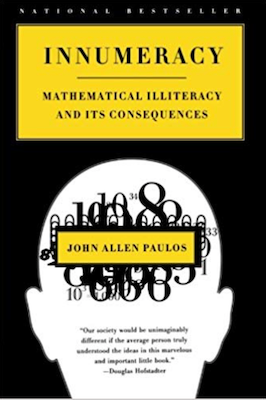
This is one of the must-read books on any data scientist’s bookshelf. John Allen Paulos takes you on a journey of examining the consequence of numbers. It gives you compelling examples of the impact of data in the real world by looking at election stats, sports stats, drug testing, stock scams, and more.
Everybody Lies: Big Data, New Data, and What the Internet Can Tell Us About Who We Really Are — by Seth Stephens-Davidowitz, Tim Andres Pabon, et al.


This is a fascinating book about real applications of data and insights generated by our Big Data. The fun part is navigating through the witty book. But, the practical understanding you gain from how data is used, perceived and processed by people will leave a lasting impression on you. It’s very easy to detach yourself from the human aspect of data science work. This book puts the human aspect back into it. It inspires people who work with data to think about the insights generated. It also inspires a skeptical mindset in someone who works with data.
Python & Data Science
Data Science from Scratch — by Joel Grus


This is a comprehensive beginner’s crash course in statistics, python, and data science. It contains implementations for models, fundamentals of machine learning and even explores the database side of things. It’s an overview book for anyone who works with data scientists to see the big picture of the entire process from beginning to end. If you only have time to read one data science book, then this is probably the book for you.
Python Data Science Handbook: Essential Tools for Working with Data — by Jake VanderPlas


This is a beginner’s guide to tackle day to day issues of data science. From using Jupyter notebooks to working with python libraries: Numpy, Pandas, Matplotlib, Scikit-Learn, etc.. It will get you started on working with Python for Data Science without taking a course. It’s perfect for someone who has experience with Python but needs a guide on the tools available for Data Science work. It will save you time Googling for answers.
Just Python
Fluent Python: Clear: Concise, and Effective Programming — by Luciano Ramalho


If you come from a programming background other than Python, then this is a great book to sharpen your Python skills before delving into any Python for Data Science books. Not only will you learn to be proficient in Python 3, you will learn to write simple and effective code. Luciano Ramalho takes you on a Python journey that allows you to be productive very quickly.
Python Tricks: A Buffet of Awesome Python Features — by Dan Bader


In data science, Python tricks are frequently used to efficiently explore the data. This book will allow you to discover a lot of the best practices to make use of the power and the simplicity of Python code. The fun part is discovering all the hidden gems in the Python standard library. Many levels of Python programmers, beginner to advanced, can appreciate this book.
Machine Learning
Introduction to Machine Learning with Python — by Andreas C. Müller and Sarah Guido


When you work with machine learning engineers, it’s often necessary to have an appreciation for algorithm selection, parameter tuning, and the methods that they use to apply machine learning concepts in their daily work. This book will give you an inside look at machine learning models, the process of training models, selecting algorithm and tuning parameters. For machine learning engineers, it’s a must-read as one of the first books to enter the field of machine learning.
Hands-On Machine Learning with Scikit-Learn, Keras, and TensorFlow: Concepts, Tools, and Techniques to Build Intelligent Systems — by Aurélien Géron


This is a great overview book of machine learning concepts, techniques, and workflows of machine learning using all of the popular Python libraries for machine learning. It’s often used by machine learning engineers as a reference book or a starting guide. It takes you through the process of training models, selecting algorithm and tuning parameters.
Deep Learning
Make Your Own Neural Network — by Tariq Rashid


This is a great book to get a deep understanding of neural networks. From the math to the implementation, the book takes you on a fun journey that simplifies the math behind neural networks. It allows you to code your own neural network and appreciate both the big picture and the technicals of neural networks. It’s a good book to read for comprehensive learning of the concepts behind neural networks.
Deep Learning (Adaptive Computation and Machine Learning Series)- by Ian Goodfellow, Yoshua Bengio, Aaron Courville

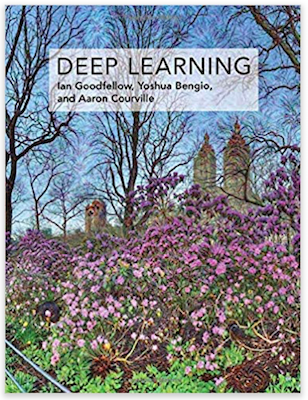
This is a deep dive into the area of deep learning. It gives you the mathematical background and conceptual background. It discusses deep learning techniques, applications, and research perspectives. It’s probably the deep learning bible for any machine learning engineer.
Deep Learning with Python — by Francois Chollet

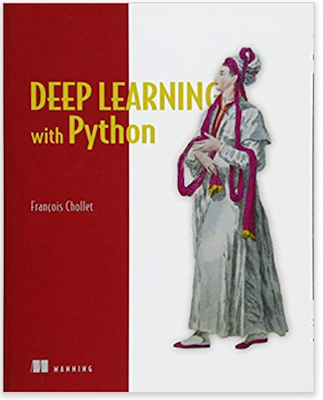
This is a good beginner’s guide to deep learning with Python. Google AI researcher Francois Chollet that takes you on a journey to learn concepts, principles, methods of deep learning that is both intuitive and in depth. He explains with practical examples of different applications of deep learning in computer vision, natural-language processing and generative modeling. It’s a good practical book on deep learning.
Hands-On Machine Learning and Scikit-Learn —by Aurélien Géron

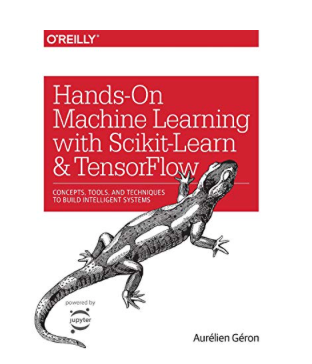
This is a good practical book for using TensorFlow and Scikit-Learn to train deep learning models. It covers the essentials of other types of machine learning models. But, working through examples can allow you to learn techniques to train and scale deep neural nets. This book makes use of the newest tools to make the machine learning process easier.
Written by

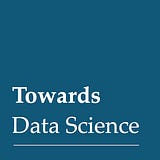

No comments:
Post a Comment